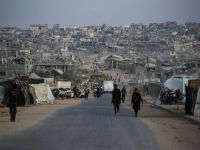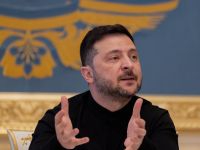By Nigel Thorpe
Chief of the English Copy Desk
In a letter sent to the Moroccan minister for Human Rights, Andrew Puddephatt, Executive Director of the London based organization ARTICLE 19, expresses concern that, in spite of the fact that the Moroccan government has prepared draft laws protecting human rights and the freedom of media, there have been “a number of recent incidents which appear to contradict this commitment.”
In its letter, ARTICLE 19 reminds the minister that the “draft laws relate to the media as part of the Moroccan government’s commitment to strengthen the right to freedom of expression and to bring its law and practice into line with international law. The letter continues “….. members of your ministry mooted the possibility of our working together on media law reform ….. In particular, we would be prepared to provide comments on draft laws from the perspective of international law or to provide officials with information about international standards in this area.”
The “number of recent incidents” that ARTICLE 19 refers to include the banning by the Minister of Culture and Communications on December 2 of two French-language (Le Journal and Demain), and one Arabic weekly (Essahifa) newspaper, for criticism of state institutions and their “unfavorable” coverage of political events. The ban was made under the provisions of Article 77 of the Press Law which gives the prime minister and interior minister the power to ban publications which target “the political and religious foundations of the kingdom.”
ARTICLE 19 believes that “bans of this sort are perhaps the most extreme form of restriction on freedom of expression justified under international law in only the most exceptional situations which are not present in these cases.”
The other incident referred to in the letter was the Moroccan government’s decision, early in November 2000, to revoke the accreditation of AFP bureau chief Claude Juvenal on the grounds of “unethical conduct hostile to Morocco and its institutions” and his “constant criticism and distortion” of Morocco’s political and economic reforms.
In ARTICLE 19’s opinion, the ‘criticism of the state, its institutions and political developments are at the very heart of the protection offered by freedom of expression.
…… While Morocco has made a firm commitment to reform in the area of freedom of expression and of the media, certain officials continue to apply repressive laws to restrict political speech.”
Two protests against restrictions on political speech and the media earlier in the week resulted in the arrest of over fifty human rights supporters in Rabat.
On December 10, riot police arrested dozens of peaceful protestors who were demanding the legalization of their Muslim fundamentalist group and the lifting of a decade-old ban on their newspaper. The protesters, all of whom are members of the outlawed Muslim fundamentalist group “Al Adl Wal Ihsane (Justice and Charity), had gathered in the capital’s central Alawite square to mark the anniversary of the Universal Human Rights Declaration. Thousands of passers-by and correspondents from Reuters and the BBC witnessed police squads violently beating up and arresting dozens of protestors.
The police seized cameras from members of the Muslim group and confiscated a video camera from a BBC correspondent who had been filming the violent scenes.
One of 41 members of the Independent Moroccan Human Rights Association arrested on Saturday night whilst demonstrating outside parliament in support of an investigation into past human rights abuses was Abderrahmane Benameur, a prominent human rights figure and lawyer. The New York Times reported that using a cell phone whilst in police custody, Benameur said that “as everybody could see, the Makhzen has returned to its old habits and repressive behavior.” The paper explained that “the Makhzen is the secretive royal court hierarchy, which operates in parallel to the government and is widely believed to be behind most important decisions. Benameur and eight women were then interrogated on Sunday by the prosecutor of a Rabat court about the part he played in the “illegal gathering.” The Interior Ministry said in statement that “demonstrations on the streets were banned over the weekend.”
According to the New York Times report, the human rights group had urged parliament earlier in the week to “set up an independent inquiry into reported involvement of 16 senior Moroccan officials in the torture and disappearance of opposition activists, mainly in the 1970’s. Most of the officials alleged to be involved are now retired and include top army and police figures, and former chiefs of both the counterintelligence and the paramilitary gendarmerie.
The day before the members of the Independent Moroccan Human Right Association appeared in court, King Mohammed VI, in a televised speech reported by the New York Times, “urged all sectors of society to work toward an improvement of the human rights situation in the country.” The paper also reported that the king, who ascended to the throne in 1999, “has set up a $12 million fund to compensate victims of human rights abuses and ordered the creation of a human rights body to examine some 5,000 complaints.”
As ARTICLE 19’s letter observes, if Morocco is to meet international standards, police practices need to be brought “into line with international law “, the new draft laws and royal decrees on “human rights and the freedom of the media.”
© 2000 Al Bawaba (www.albawaba.com)







